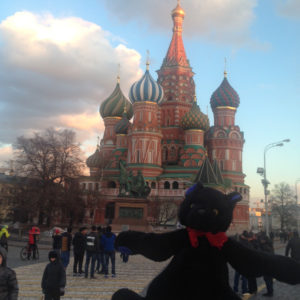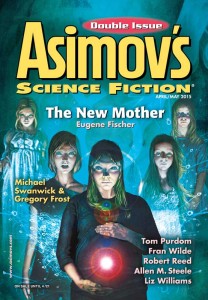There is nothing quite as strange as when a literary persona who has been a favorite of yours through decades and at least 3 translations of a great novel (points for knowing which book I speak of) happens to manifest in the real world. And in Red Square. And is documented by Jill Roberts, managing editor at Tachyon Publications.
Behold Behemoth!




